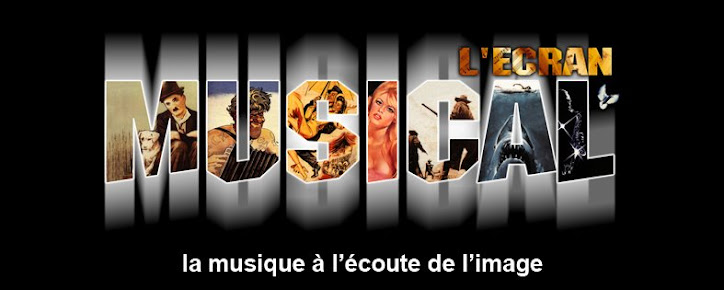
I briefly considered writing this piece in ostenati, you know, small repetitive phrases over and over, and over and over, as a sort of verbal tribute to Herrmann who usedthis musical device often in his film music, in his film music, in his film music, in his film music. When I listen to music being written today for films and hear music that uses ostenati it often seems cool and fresh (e.g. John Powell’s Bourne Identity). I think it is one of the things I really like about being a composer ; the textural use of rhythms, the tension and momentum these rhythmic devices can bring. And for mecertain scores of Herrmann’s remain inspiring in this way.
When I arrived in Hollywood in the early 1990s, I was not much interested in Herrmann. I am really preoccupied by melody, long lyrical themes that sweep and soar dramatically, and Herrmann perversely seemed to avoid melody altogether. I tended to dismiss things you couldn’t hum, so I paid him little heed at first. But then I think I became aware of how much he was referenced by filmmakers that I met in LA so I started paying more attention and listening to some of his scores, and the one that really struck me was North by Northwest. Now here was a score that really did sweep and soar and had tons of energy, and yet no traditional tune. And still it remained interesting and surprising throughout. I was fascinated by the coordinated motion of music that did not have a lyrical thread to hold it together, something that I regarded as a necessity. This seems to apply to a lot of his music, that somehow its momentum and style and its small repeated musical snatches and large surging waves of sound are what binds it together.
For me it is partly the musical vocabulary that Herrmann contributed to film composition that I find so interesting, a vocabulary that enabled him to create music that is strongly moody, full of tension, and riveting in a distinctive way. Stylistic uses of small motifs, arpeggios of his own devising, intriguing repetitions with perverse alterations in the rhythm, unusual articulations or bowing, all contributed a wonderful new tapestry of colours to the sound scape of film score. Sounds and ideas that were certainly not in the mainstream then. And in the present, these tools remain just as relevant as ever for the composer. Listen to scores by Christopher Young or Danny Elfman and you can hear how these musical colours can be used in a wholly contemporary context and have been reinvented, and are as modern and vital as ever.
Back in 1998, I was working with Alexander Payne on a film called Election, a social satire set at an american high-school. There is a slightly kitsch moment when the lead character is driving through the night on a secret errand in a scene that was shot to have a vintage feel to it. The background was deliberately made to look like obvious back-projection, and the whole sequence had a sense of hightened melodrama. But how should I score the sequence ? One of the first things I discovered that was “ Herrmannesque ” was the repeated crunchy chord, a dissonent chord with a few semi-tone “ rubs ” or clashes in it. Played by a string orchestra it has delicious ‘40s Herrmann flavour to it, and it was the device I employed here. I took my melody from the main theme of the film, rearranged it into a minor key, and supported it with this sequence of crunchy chords. I really enjoyed this first conscious foray into using Herrmann’s musical vocabulary. And I was pleased to discover that it was possible to borrow from his box of tools while preserving my own melodic instincts.
On a final note, there are times when my thinking gets stuck, generally about 2/3 of the way into a film score, and I find it hard to think of something new to compose. At such times there are certain composers who inspire me because their ideas seemed to be so infinitely variable, and just the thought of their flexibility, their ability to change directions whimsically and brilliantly, seems to have an inspiring effect. The late Michael Kamen is just such a composer, as is Stravinsky for me, and of course Herrmann, Bernard Herrmann, Bernard Herrmann, Bernard Herrmann
Rolfe Kent













Aucun commentaire:
Enregistrer un commentaire